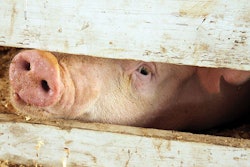
Symrise AG, parent company of Diana Pet Food, announced a purchase agreement for the acquisition of Schaffelaarbos. The Netherlands-based market leader for egg protein in pet food will likely complement Symrise’s current capabilities. Schaffelaarbos current annual sales amount to around EUR 25 million (US$28.2 million).
“The acquisition of Schaffelaarbos represents a prime opportunity to accelerate Symrise’s ambition to become a reference global player in pet nutritional solutions, while contributing to a positive circular food system,” said Jean-Yves Parisot, president flavor and nutrition of Symrise AG. “The combination of our activities of ADF/IsoNova in the U.S. and the leading position of Schaffelaarbos in the EU will enable us to even better serve our customers with a global portfolio and a regional supply.”
Back in 2019, Symrise acquired ADF/IsoNova, the provider of chicken protein and egg protein for the U.S. pet food industry, tapping into a new market. With the acquisition of Schaffelaarbos, Symrise is now further expanding its global presence, with long term access to raw materials. As for future growth and profitability, Symrise plans to accelerate product innovation and break new ground.
“I am very enthusiastic about this transaction,” said Mathieu Woltring, CEO of Schaffelaarbos. “Our two organizations both value the industrial proximity to our clients and share a common vision based on the valorization of by-products. We will accelerate our journey together and join forces in making the pet food business even more sustainable in the future.”Read more about sustainable proteins
Measuring protein’s impact on pet food sustainability
With the rising focus on sustainability, pet food’s environmental impact has come under scrutiny from mainstream media, environmental organizations and others. The main culprit, according to these critiques, is protein sources from livestock. An oft-cited reference: a 2017 study by Gregory Okin of the University of California Los Angeles (USA) purportedly showing that “dog and cat animal product consumption is responsible for release of up to 64 ± 16 million tons CO2-equivalent methane and nitrous oxide, two powerful greenhouse gasses.” While several of Okin’s assumptions about pet food going into his research have been debunked by industry experts, those documents tend not to be found or reported in most articles citing the study.


















